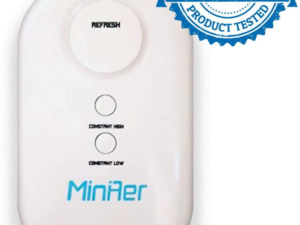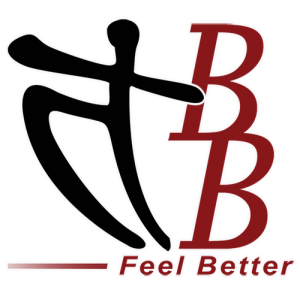How Accurate Is That Test?
Physical assessment is considered one of the most accurate ways to assess function of the locomotor tissues of the body. While we can often gain valuable information about structural problems through high-tech diagnostic procedures like X-ray or MRI, these procedures tell us very little about the function of the tissues involved in creating and limiting movement.
Some of the most detailed information practitioners gather from physical examination comes from a group of procedures called special tests. This group includes methods such as active range of motion; passive range of motion; manual resistive tests; and special regional orthopedic tests. The special regional orthopedic test is a particularly important element of the assessment process. This test is designed to give information about a particular injury or condition.
A practitioner’s success in identifying a client’s problem is often directly related to his/her ability to perform good assessment procedures such as special regional orthopedic tests. The practitioner must be able to perform the test correctly. Other factors also come into play in determining how effective that assessment procedure is, and consequently how effective the practitioner is at identifying the client’s problem.
Accuracy in special regional orthopedic tests is affected by the relationship of two related concepts – sensitivity and specificity of the test. Sensitivity is the percentage of subjects with the condition who also show a positive result on the test. It determines how “sensitive” (accurate) the test is at determining the condition when it is present. Specificity is the percentage of subjects without the condition who show a negative result on the test. It determines whether the test can show if someone doesn’t have the condition.
Take as example a sample of people in an experiment: some with carpal tunnel syndrome, and some without. If a special regional orthopedic test like the Phalen’s test is performed, and everyone tests positive for carpal tunnel syndrome, it means that everyone in this group who had carpal tunnel syndrome got a positive test. The sensitivity of the test in this instance is considered high. However, all the people who don’t have carpal tunnel syndrome also tested positive; there were no negative tests, even for people without the condition. Therefore, this test’s specificity is low.
Certain commonly utilized special orthopedic tests may not have a high degree of sensitivity or specificity, yet are frequently used as guidelines for evaluating the presence of a particular condition. A good example of this is Adson’s maneuver, used for identifying thoracic outlet syndrome. To perform Adson’s maneuver, the practitioner finds the client’s radial pulse at the wrist, then brings the client’s arm back into extension and lateral rotation. The client is instructed to look over his/her shoulder toward the affected side and take in a deep breath. If the intensity of the pulse diminishes, the client is suggested to have entrapment of the brachial plexus and subclavian artery by the anterior and middle scalene muscles — commonly referred to as thoracic outlet syndrome. The problem with this procedure is that a large number of people who do not have any symptoms test positive (diminishing radial pulse) when this test is performed. Thus, this test does not have a high degree of specificity.
The most accurate special regional orthopedic tests have high degrees of specificity and sensitivity; however, this is not always easy to demonstrate. Many studies attempt to evaluate the effectiveness of different assessment procedures, and to illustrate the strengths and weaknesses of each. The more you know about the clinical accuracy of these procedures, the more capable you are of identifying your client’s primary complaint.
Ready to #feelbetter?
You're just a click away from a wicked good massage!
-

60 Minute Massage Gift Card
$170.00 Add to cart -

90 Minute Massage Gift Card
$255.00 Add to cart -

Mini Aer Small Room Air Purifier
$149.00 Add to cart -
Sale!

Thera-Pearl Sports Pack/Hot Cold
Original price was: $14.99.$12.99Current price is: $12.99. Add to cart -

3 Somadome Sessions Gift Card
$135.00 Add to cart -

TheraBand CLX Connective Loop
$14.99 Select options -

6 Somadome Sessions Gift Card
$270.00 Add to cart -
Sale!

Biofreeze
Original price was: $14.99.$12.99Current price is: $12.99. Add to cart
Sprain vs. Strain; What’s the Difference?
Sprain vs. Strain; What’s the Difference? So you think you might have sprained or strained something. How do you know which it is, and does it matter? You’ve heard the two terms your entire life, but did you know that there is not only a major difference between them, there are also varying grades and…
Read MoreComplimentary Consultations for Members
As we unveil the newest membership perk at The Boston Bodyworker, our Recovery Lounge, we wanted to reach out to our members to introduce them to one of its many features; Me! As the owner of The Boston Bodyworker, my goal is to help people ‘feel better’. However, that means different things to all of…
Read MoreLife Hack: Vagus Nerve Stimulation
As I discussed in our March Newsletter, Vagus nerve stimulation has the potential to help those suffering from various health conditions, including but certainly not limited to anxiety disorders, heart disease, some forms of cancer, poor circulation, leaky gut syndrome, Alzheimer’s, memory and mood disorders, migraines and headaches, fibromyalgia, obesity, tinnitus, addiction, autism and autoimmune…
Read MoreSleep In This Weekend
Raise your hand if your sleepy right now? Great! Now, put your hand down because your boss is wondering why you’re raising a hand at work. Even if you can’t physically acknowledge that you are sleepy, we have some exciting news that we know you’ll want to stay awake for. It turns out, that getting…
Read More30 Day Challenges
Over the past few years, I have been seeing and uptick in these 30 day challenges. Being in the industry as long as I have, I immediately have issue with any workout that is done every day. The science is as clear as crystal. The days off are where the magic of tissue remodeling and…
Read MoreLife Hack: Close Your Windows
If you suffer from season allergies, then this season is said to be the worst for many of you in a long time. I won’t get into the debate about climate change and how it is said to have an impact on the latest seasonal allergy warnings. I’ll try to keep this hack as simple…
Read MoreThe Power of Suggestion
We have all heard the term “Placebo”. A placebo is a treatment that decreases symptoms only because the client imagines a benefit, not because the treatment itself has any effect. For example, a sugar pill can be a placebo that will improve a headache only if the person taking the pill has an expectation that…
Read MoreIs All Knee Pain Created Equal?
As a massage therapist, it is outside our scope of practice to diagnose any condition we see. However, that does not prevent us from evaluating, assessing and working off this information. Often, we have patients who come in with a “google-osis”, meaning they just googled something like “knee pain” looked for whatever symptoms seemed to…
Read MoreMembers Recovery Lounge
At The Boston Bodyworker, we are constantly motivated to honor our mission to help you “Feel Better”. Coming this April, we are delighted to unveil our newest membership advantage; our Recovery Lounge. Members will enjoy a dedicated space….exclusive access to a private/semi-private room that has been transformed into a place for you to arrive early…
Read MoreLife Hack: Yellow Mustard to Reduce Cramps
Runners are always seeking an edge, especially on race days. Well, the biggest running race of the season is creeping up quickly and the only thing that will creep up faster are cramps along the marathon route. Have no fear, we have a simple solution for you; Yellow Mustard! That’s right, mustard Seeds of its…
Read More
